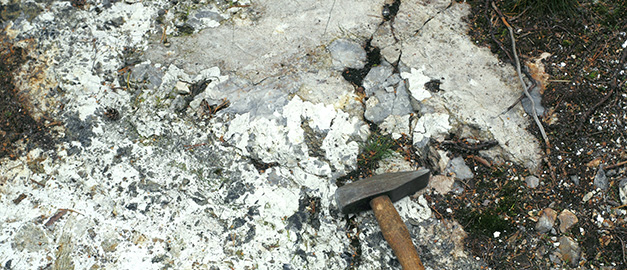
Legislation
The following presents information on the regulatory framework surrounding mineral exploration and mining activities. You will also find links to Acts and Ordinances concerning the exploration and extraction of various mineral resources.
The legislation is different for different mineral resources. Minerals that are deemed particularly essential to society are called concessionary minerals and are subject to the provisions of the Minerals Act. Most metals belong to this category. For other minerals (‘landowner minerals’) the provisions of the Swedish Environmental Code apply.
The Minerals Act
The Minerals Act encompasses specially designated valuable mineral substances, known as concessionary minerals. The Swedish bedrock has great geological potential for these minerals, but despite this, economically mineable deposits are difficult to find. Finding and extracting them requires special skills, a lot of capital and, particularly for exploration, access to large areas of land. Therefore, in Sweden, those who have the prerequisites to explore or mine a mineral deposit are granted a permit to do so under the Minerals Act, regardless of who owns the land. In the event of several interested parties, the Minerals Act also has the important function of determining who should be given priority access to the deposit and the right to extract it.
The role of the Mining Inspectorate of Sweden
The Mining Inspectorate of Sweden is an organisational unit within SGU whose role is to process matters concerning exploration and extraction of minerals. The Inspectorate is headed by the Chief Mining Inspector who decides on matters falling under the Minerals Act.
Read more about the Mining Inspectorate of Sweden
Permits for exploration and mining
It is the Chief Mining Inspector who issues exploration permits. This is regulated in the Minerals Act. The Minerals Act also regulates who should have exclusive exploration rights and extraction precedence.
In order to mine a deposit, it is necessary to obtain a permit called an exploitation concession from the Chief Mining Inspector. This is also regulated in the Minerals Act. In addition, a permit is also required under Chapters 9 and 11 of the Swedish Environmental Code. This environmental permit is granted by the Land and Environment Court. Other permits may also be required depending on local conditions and the surroundings of the deposit.
You can read more about the regulatory framework regarding exploration and mining activities on the Mining Inspectorate of Sweden website.
Legislation for other minerals
The issuing of permits for other minerals (i.e. non-concessionary minerals) is regulated in the Swedish Environmental Code.
The permission of the landowner is always required to search for minerals that are not concessionary minerals, e.g. rock, gravel and peat. Their extraction generally requires a permit in accordance with the Environmental Code, as well as approval from the landowner.
Links to Acts and Ordinances
To the right you will find links to the Acts and Ordinances concerning the extraction of ores and minerals. The links lead to pages in the Swedish Government Offices database. An English translation of the Minerals Act is also available for download in PDF format.
Last reviewed 2023-04-18
